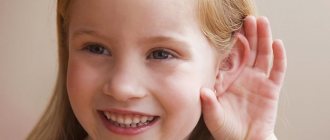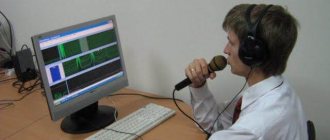The most famous pediatrician in the country, Evgeniy Komarovsky, suggested how to help a child speak and what parents can do for this.
Source: instagram @irinakonstantinova_photo_
Each child has his own pace of development - when the first tooth grows, when he takes the first step and says the first word. But if the growth of teeth cannot be influenced in any way, then it is quite possible to encourage the baby to speak. And it's not difficult at all. The main thing is to create conditions for this. Evgeny Olegovich Komarovsky formulated 7 simple actions that any parent can do.
Ask questions
And it doesn’t matter at all that the baby can’t answer them yet, and doesn’t even realize the meaning of the question. But he hears a change in intonation and thus becomes acquainted with the language native to him and his parents. A little time will pass and you won’t even notice how your child will learn to clearly distinguish interrogative intonation.
Source: Fotolia
Doctor Komarovsky's opinion
Dr. Komarovsky is a famous pediatrician who became widely known thanks to television programs. In them, he gives expert advice to mothers of children regarding various parenting problems.
In his programs, he repeatedly discussed the topic of children's speech development.
Main points:
- According to Dr. Komarovsky, mothers begin to sound the alarm too early about what the child is saying. Laughing, he says that mothers come to him with this problem when the baby is not yet a year old.
- Also, in his speeches, Komarovskikh repeatedly speaks about the harm of modern gadgets on the development of children. According to the doctor, modern children “communicate much more with phones and tablets than with their mother and father.” Komarovsky emphasizes the importance of communication between parents and children. Modern parents are very busy and themselves experience constant stress, however, despite the high pace of life, it is extremely important to find time every day to communicate with the child, says Evgeniy Olegovich. According to the doctor, there is no point in taking the baby to the doctors and “looking for a magic pill” if he experiences a lack of communication in his family. Emotional communication with mom and dad sometimes gives a much greater result in the development of a child’s speech than drug treatment.
- In his program “What to do if a child of 2 years old does not speak,” Komarovsky explains in detail the difference in the development of children who play with gadgets and toys. Evgeniy Olegovich explains that when a child plays with a simple rubber ball or doll, he always needs a connecting object between the toy and himself - an adult. The adult explains to the child exactly how to play with this object, talks about its properties, and reacts emotionally to the child’s play with the object. Emotional communication between an adult and a baby stimulates his verbal communication.
First, the child develops a need to understand what adults tell him. Thus, so-called passive speech is formed - the baby’s ability to understand speech addressed to him.
At 2 years old, a child should be able to follow double instructions. For example: Take the Masha doll and give it to me.” If a child at 2 years old does not speak, but understands the speech of adults, we can say that he has passed stage 1 of speech development - the formation of passive speech. The next stage is the development of active speech, when the child begins to speak individual words and then build sentences from them.
What to do if the child does not speak
For parents who are worried that their child is still not talking at 2 years old, Komarovsky recommends that they consult a doctor.
Surveys
- Examination by an ENT specialist It is necessary to conduct a hardware hearing examination and make an audiogram that will show the baby’s hearing level, as well as the range of sounds that he hears.
- Consultation with a neurologist Neurological pathologies are a common cause of deviations in speech development, from mild to severe. An examination by a neurologist will allow you to diagnose existing diseases and begin to treat them in a timely manner. Before going to a neurologist, try to remember all the important milestones of development: When the child began to roll over, sit, walk • When the baby began to walk, understand the speech of adults addressed to him • What skills and abilities he has now. Your doctor will definitely ask you about this, so be prepared to answer these questions.
- Consultation with a speech therapist A speech therapist will help identify developmental disorders of the speech apparatus. The most common pathologies are: • frenulum • hypotonicity of the facial muscles and tongue.
- Consultation with a child psychologist
The psychologist will examine the baby’s speech and identify his deviations from the norm. It will also help you figure out whether there are psychological reasons for the lack of speech.
Advice from Dr. Komarovsky
- Assess your child for physical and neurological problems.
- Consult a speech therapist and child psychologist.
- Limit your baby’s interaction with any gadgets: phone, tablet, TV.
- Try to communicate more with your toddler: name objects and phenomena out loud, loudly and clearly.
- Speak out the actions you take. “Now we’ll eat and go play ball. Dad will come soon and we’ll go for a walk in the yard together.”
- Don't scold your child if he is silent. Parents' negative reaction to the lack of speech can only worsen the situation. On the contrary, try to reinforce your two-year-old’s attempts to communicate with positive emotions: a smile, praise.
If the baby starts to say “ma-ma-ma” when he sees you, smile at him and say: “Yes, Sonechka, mom has come, now we’ll go for a swim. Who here likes to swim in warm water with a duck? Sonya! How does the duck speak, Sonechka? Quack-quack, quack-quack!”
- Encourage any attempts by the toddler to speak: new sounds, new words, attempts to imitate adults. “Beep beep”, that’s right Igorechek, the car beeps “beep beep”.
- Ask your child open-ended questions: what do you see in the picture? What is the bear cub's name? What color is the ball?
- Read children's poems, fairy tales, and sing songs to your baby. Look at the baby elephant:
The child has a long trunk! - And I can do that too! – Seryozha says to his mother. He curled his lips into a tube and pulled forward! - Look how good it is! - I look like an elephant!
- Learn tongue twisters, fairy tales, and nursery rhymes together.
*** The gray wolf under the old tree clicked his teeth for two hours. He opened his mouth wide, but didn’t catch the bunny. *** Egorka goes to his grandmother: Climbs the hill, After the hill there is a lowland again. River... Bridge arched his back.
- Encourage the “silent one” to communicate with other children. Try to visit playgrounds more often, invite peers to visit so that the baby has the opportunity to communicate with other children.
- Don't predict your child's wishes. Give him the opportunity to express them to adults. Clarify his requests: what kind of juice will you have, apple or peach?
- If possible, protect your baby from stress.
So, if a child does not speak at 2 years old, Dr. Komarovsky advises not to panic, examine the baby and create favorable conditions for development at home , then he will certainly speak.
Eliminate baby talk
Despite the temptation, try not to babysit your child. Speak in simple language, but in normal words, as with an adult - you don’t know when the baby will begin to understand your words, this may happen unexpectedly early. Thanks to your conversations, the baby masters the basic units of language and the laws of their functioning.
Source: Shutterstock
Why a child does not speak at 2 years old: reasons
There are many reasons why a child does not speak at this age. Most often, the baby is influenced by several factors at once that cause delayed speech development. Congenital pathologies can be combined with psychological reasons that affect speech development, such as stress, pedagogical neglect and others.
Reasons why a child does not speak at 2 years old:
- Pathologies of intrauterine development and birth injuries. Intrauterine asphyxia of the fetus and difficult childbirth can negatively affect the development of certain areas of the brain, including those responsible for the development of speech.
- Neurological diseases. Any neurological pathology can cause speech underdevelopment in a baby. From general muscle hypotonicity to severe forms of brain development disorders.
- Hearing problems. Congenital deafness or even partial hearing loss always affects the development of speech. The cause of hearing loss may be an unfavorable course of pregnancy, poor heredity, or complications after an infection.
- Speech disorders, such as general speech underdevelopment or alalia, can cause a child to not speak at all at 2 years of age. Such disorders arise as a result of a combination of many negative factors during pregnancy: alcohol consumption, smoking, intoxication, severe infections.
- Intellectual impairments: mental retardation of varying degrees, mental retardation can also cause the child to start speaking later. It is important to diagnose the disorder in a timely manner and begin drug treatment and corrective work with a speech pathologist.
- Autism. Autistic children lag behind in speech development due to their isolation and unsociability. Such children do not make contact with adults, so they may not speak or lag behind their peers in speech development.
- Attention deficit. Lack of attention from adults to the baby can also cause his lack of speech. If a child is not given attention and has little interaction with him, his speech may develop extremely slowly or be absent altogether.
Causes of delayed speech development in children 4 years old
Various reasons lead to 4-year-old developmental disorder. Some of them affect the fetus in the womb, some - during childbirth and after birth.
Antenatal reasons:
- complications of pregnancy, threat of miscarriage, toxicosis, gestosis;
- illnesses of the expectant mother - exacerbation of chronic diseases, infectious and inflammatory, injuries, intoxication, bad habits;
- conditions that led to fetal hypoxia - placental pathology (anomalies, abruption), umbilical cord entanglement.
During childbirth:
- premature birth;
- rapid labor;
- injuries during childbirth;
- inadequate management of labor, use of obstetric forceps.
After childbirth, delayed speech development in children 4 years of age can result from:
- injuries, especially traumatic brain injuries, are dangerous for speech development;
- diseases - neurological, for example, cerebral palsy, encephalopathy;
- unfavorable family situation - conflicts, parents do not care for the child;
- the opposite situation is overprotection, excessive pressure and demanding parents;
- excessive stress - physical (sports), mental (overload with activities).
Predisposing factors are a hereditary predisposition to RRD at 4 years of age. These may be genetic disorders, congenital abnormalities of the nervous system,
Peculiarities of manifestation of delayed speech development in children 4 years old
Features of delayed speech development in children 4 years old are slow or fast speech, blurred sounds, omissions of letters or syllables. Some children do not pronounce words at all or abbreviate them, replacing words with syllables, gestures, and facial expressions.
Characteristic symptoms:
- difficulties in formulating the question and in answering the question addressed to him; the answers are usually monosyllabic (“yes”, “no”, “there”, “here”);
- poor vocabulary - usually uses only those words that are used in everyday life;
- incorrect pronunciation of complex words;
- skipping syllables and sounds;
- lack of skills in composing a simple story or sentence based on a picture;
- replacing words that sound similar;
- There are no hissing or whistling sounds in the articulation, or the patient pronounces them incorrectly;
- replacing sounds with easier ones to pronounce;
- lack of criticism of speech errors in oneself and other people.
Communication and massage
What can parents do at the “toothless” age so that the child speaks correctly in the future?
Firstly, parents need to spend as much time as possible with the baby, communicate and play with him. Moms and dads must remember that the main source of the harmonious development of the child is themselves.
The baby learns when he sees everything his parents do and repeats their movements. Therefore, you need to comment on what is happening and explain your actions, draw the child’s attention to the details (“it’s raining outside: drip-drip”, “how the leaves rustle: rustle-shur”, “now I’ll take the milk out of the refrigerator, how cold it is!”).
The child may not understand the words, but he will see the movement of the lips and the emotions that appear on the face (face-to-face communication is the best way to interact with the child). In this way, the baby’s passive vocabulary will accumulate, which in the future will become active. It can be recommended to massage the child’s articulation organs (cheeks, lips, tongue) daily in a playful manner. It is better to do this with warm hands or cotton swabs with soft, unobtrusive movements. While performing such a massage, you need to tell a fairy tale or nursery rhyme to your baby.
Five advantages of a grandmother. A nanny will not replace communication with older relatives Read more
Silence is gold?
Speech delay up to 3-4 years can be caused by a variety of reasons. Finding them out is the task of the speech therapist. Contrary to popular belief, most speech delays are not associated with serious problems. Sometimes the reason lies not in the child himself, but in the family situation, which at first glance may seem quite prosperous.
For example, a mother stays at home with her baby. Formally, they are together all the time, but in fact, the mother does household chores, and the child sits in a crib or playpen. The worst thing is if the mother gives the baby a gadget during this time. Electronic toys are the scourge of our time. It has been proven that they have a bad effect on the nervous system and speech development. Therefore, pediatricians and speech therapists have an unspoken rule: under 3 years of age, a child should not watch TV or play with electronic toys.
Sometimes it is allowed to watch a cartoon together with an adult with discussion and comments. You can often hear at a reception: “Our TV is working, but the child doesn’t watch it.” But the background mode “clogs” the baby’s perception centers, which should be aimed at assimilating other sounds. The child simply does not hear them, constantly being distracted by changing frames and loud advertising. You shouldn’t delude yourself about educational computer games (and today even 0+ games have appeared). The best development for a child is communication with his mother, family, and other children. No fancy computer toys can replace it.
Question answer
How to get children to read?
Methods of treating RDD at 4 years of age
Correction of delayed speech development in children 4 years old takes place with the participation of a speech therapist, neurologist, psychologist, and ENT doctor. First, a diagnosis is carried out, during which specialists identify the cause of the defect, find out the features of the course of the antenatal, intranatal (childbirth period) and postpartum period. They study the outpatient card, previous diseases, the nature of physical and neuropsychic development up to one year and at an older age.
This is followed by the stage of hardware examination methods to clarify the diagnosis and exclude organic pathology of the ear, brain, and articulation organs. Electroencephalography, X-ray, MRI or CT scan of the brain, and audiometry are performed. After an accurate diagnosis has been made, treatment for mental retardation begins at 4 years of age: it should be comprehensive, using various methods.
Held:
- Drug treatment - nootropics, sedatives, vitamins, as well as herbal medicines;
- Speech therapy correction - speech therapy massage of the tongue, lips, facial muscles, articulation gymnastics, breathing exercises;
- Physiotherapeutic procedures, including magnetic therapy, acupuncture;
- General massage;
- Physiotherapy.
All treatment procedures are prescribed by a specialist. He knows the characteristics of your child’s 4-year-old RRD, the cause, and based on this he selects an individual treatment regimen. It is unacceptable to independently prescribe a drug, even if it is herbal, to change the dose of a medicine prescribed by a doctor or to cancel it.
An important component of successful treatment is eliminating the cause of the defect. Conflicts, quarrels, mental and physical stress should be avoided.
With the timely start of the correctional program, the absence of severe neurological and mental pathology, and the active participation of the child and parents in the treatment process, the prognosis is favorable. Children's pathological pronunciation of sounds disappears, they begin to speak correctly, clearly and expressively. They ask and answer questions competently. The vocabulary is gradually expanding.
A 4-year-old child diagnosed with RRD is being registered at a dispensary. Specialists monitor him and monitor his further development of speech skills. This is necessary to prevent relapse of the disease. If this happens, it is important to start therapy on time.
How to make a silent person talk?
I would like to warn parents against a common mistake. It is known that children who understand everything but say nothing are called silent. However, when such kids ask to give them something and point to an object, parents pretend that they do not understand and ask to explain in words. This behavior hurts the baby. He ceases to trust his parents and perceive them as “his own.”
You need to understand that the child is silent not out of “harm,” but because some problem prevents him from speaking (for example, incorrect perception of sounds). Experts recommend a different technique.
You need to read poems well known to the child and sing children's songs without saying the ending. The brain is designed in such a way that it always strives to complete a melody or poem if it ends on an unstable note. Therefore, the baby will certainly have a need to finish what he heard.
Melodies that end on open syllables are very useful for speech development. For example, the famous song “Far, far away, in the meadow they are grazing…”, where the parent will sing only the first two syllables of the word “far”, and the child will finish.









